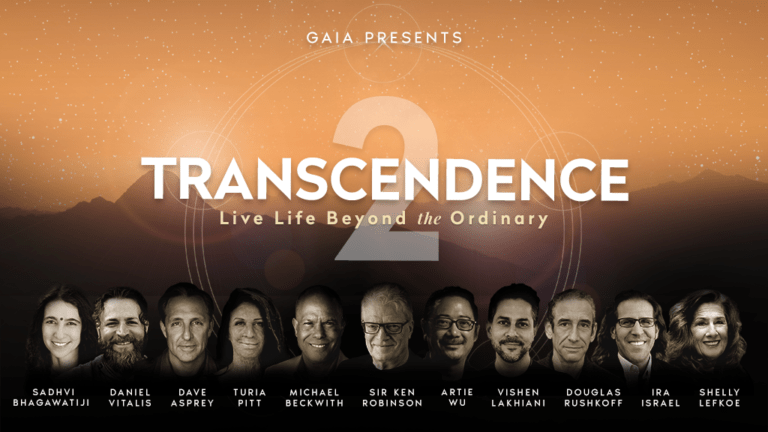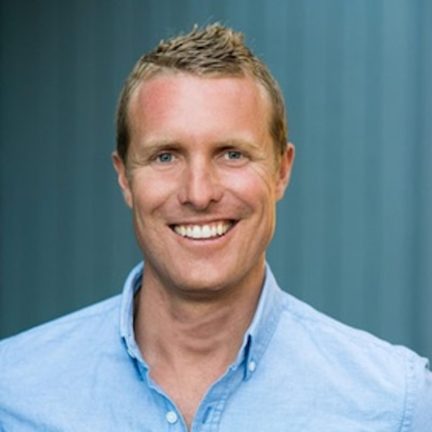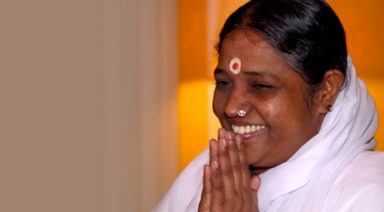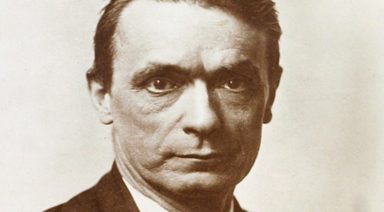How To Bounce Back When Life Knocks You Down

At times life can get difficult. We’ve all experienced this at some point and likely more recently than not, given what’s been happening in the world as a result of the Coronavirus.
Maybe it’s a broken relationship, the loss of a job, accumulating debt or financial ruin, a terminal diagnosis, or grieving the passing of a loved one.
These are some of the biggest emotional challenges of our lives, and they seem to not escape anyone. In the depths of despair, no matter how hard you might try, it can feel utterly frustrating and overwhelming.
However, is it possible to find meaning in adversity? And could this lead us to discover a deeper purpose in our lives?
This is something that Sonia Ricotti knows all too well. Years back, she hit rock bottom after losing her home, accumulating six-figures in debt, breaking off a relationship with her alcoholic partner, and going through a significant health scare. For a fleeting moment, she even thought about ending it all.
In Episode 5 of Transcendence Season 2, Sonia shares her personal story alongside expert commentary on bouncing back with the likes of Michael Beckwith, Bradley Nelson, Turia Pitt, Sadhvi Bhagawatiji, Dawson Church, and more.
From losing a child in a mass shooting to surviving a horrific bushfire, these incredible stories show that how we respond to life’s challenges can shape who we are. Our willingness to bounce back and the lessons we take from challenges are what propel us forward in life.
Part of understanding the bigger picture and purpose of our suffering lies in what American Professor Joseph Campbell refers to as ‘The Hero’s Journey.’ In Episode 5, Mike Sherbakov elaborates on this concept, encouraging us to find meaning in a moment instead of reverting to a ‘why me’ mentality.
Reverend Michael Beckwith takes this further and suggests that when we stop asking ourselves why and start asking ourselves what is seeking to emerge through these experiences, our lives begin to shift exponentially.
In Episode 5 “Discovering Your Gifts,” you’ll also uncover:
- How to stop procrastination and start living a life aligned to your true purpose, without having to quit your job.
- The secret to discovering your gifts and what that journey will look like for you.
- Why some of the brightest minds today believe our future is a positive one.
- The power of meditation and life visioning to manifest your dream life and shift the world’s energy and vibrations.
- How meditation can boost your creativity and mind power by over 400%+.
- And, much more.
The worldwide premiere screening of Transcendence Season 2 begins on Monday, May 18. You can save your spot here to the free online premiere.
We have the ability to turn our greatest challenges into our greatest teachers. Sometimes it just takes a slight change in perspective.
The Hero's Journey: Joseph Campbell Now More Relevant Than Ever

Making sense of our consciousness can be difficult, and in our materialist, western world we try endlessly to objectify that experience. But over the course of the past century, there have been a number of intermediaries reminding us to reconnect with elements of the spiritual journey.
Names like Alan Watts, Thich Nhat Hanh, and Deepak Chopra have sparked a renaissance of interest in the nature of consciousness, meditation, and mindfulness. They remind us of stories and lessons learned over the course of our history, and within these, we find recurring themes of transcendent truth.
But there is one liaison between the old world and the new, who bridged these philosophies and connected the ancient esotericism of the east to the pragmatism of the scientific west, through archetypes and allegory.
Joseph Campbell defined this thirst for truth over a lifetime by examining artists, psychologists, writers, and philosophers. He referred to the lessons in their mythos as the Masks of God, and the protagonists within those stories as the Hero with a Thousand Faces.
Campbell consumed as much of their wisdom as possible, voraciously reading nine hours a day for years at a time. He absorbed the work of great western minds like Carl Jung, Pablo Picasso, James Joyce, and Sinclair Lewis. Through these lessons, he connected the dots of contemporary consciousness with the timeless teachings of the Bhagavad Gita, the Bible, Greek mythology, and the Tibetan Book of the Dead.
In those years of study, he found lessons that applied to man and society at large – overarching narratives that struck a universal chord, particularly the sense that at some point in our lives, we find there is a call unanswered, a void in the spirit that must be fulfilled.
“Follow your bliss and the universe will open doors for you where there were only walls. The cave you fear to enter holds the treasure you seek.”
– Joseph Campbell
The Hero’s Journey
Campbell said you can never be at peace with yourself if you do not answer that call. The call to adventure that forces the hero to remove himself from the ordinary world and face whatever it is that threatens his safety, comfort, and way of life.
At first, the call is refused when fears and second thoughts arise, or the comforts of the home seem too difficult to abandon. But eventually, the hero finds a mentor who pushes them and provides the tools needed to confront their tribulation.
When one considers the “Hero’s Journey,” Luke Skywalker, Arjuna, or even Hamlet could fit the role, but these stereotypes are meant to convey a general truth about finding the fulfillment we all seek. The personal ordeals that confront us can be difficult to face, causing us to relinquish a part of ourselves and take solace in a place that feels safe, while we remain oblivious to what could be learned by challenging those fears.
For some, it may be a vice; an addiction that keeps us trapped in some behavior or lifestyle. Campbell looked to the Tibetan Book of the Dead to confront this type of ordeal, learning that the scripture taught one to strive for the opposing virtue of whatever your vice may be; to overcome what he called the “inmost cave.” By cultivating the antithesis of your vice, you will find the self-actualization that defines your being.
This sentiment has been echoed many times over the ages, and Campbell summed it up when he said, “Gods suppressed become devils, and often it is these devils whom we first encounter when we turn inward.”






































